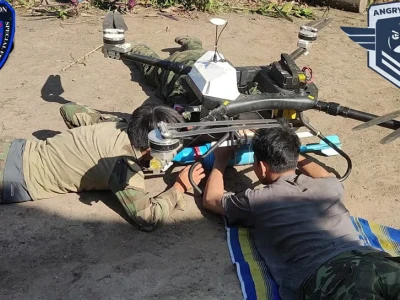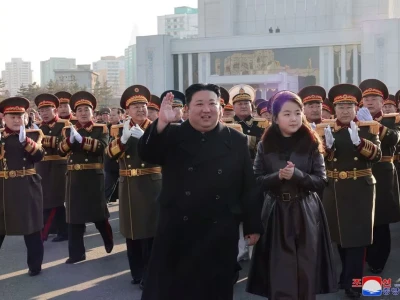
Azerbaijan says France laying ground for new regional war by arming Armenia
"We are really worried about Armenia's territorial integrity," the diplomat told Reuters.
BAKU, Nov 21 (Reuters) - Azerbaijan's President Ilham Aliyev accused France on Tuesday of creating conditions for a new war in the South Caucasus by supplying arms to Armenia.
Aliyev used a speech at a conference on decolonisation in Baku to deliver a scathing broadside against France, which said last month it had agreed new contracts to supply military equipment to Armenia.
"France destabilises not only its past and present colonies but also our region, the South Caucasus, by supporting separatist tendencies and separatists," Aliyev said.
"By arming Armenia, it implements a militaristic policy, encourages revanchist forces in Armenia, and prepares the ground for the start of new wars in our region."
In response, a French diplomatic source said France, with European and U.S. partners, was working towards a just and durable peace in the southern Caucasus, based on the principles of respect for sovereignty and borders.
Armenia and Azerbaijan have fought two wars in the past three decades but Aliyev scored a major victory in September by recapturing the Karabakh region of Azerbaijan, where ethnic Armenians had enjoyed de facto independence since the early 1990s. More than 100,000 of them have since fled to Armenia.
Azerbaijan is now in a strong position to secure an advantageous peace deal with Armenia and has taken an increasingly tough line towards Western countries, especially France and the United States, which have large ethnic Armenian communities and have been sympathetic towards Yerevan.
A French diplomatic source said last week that France had asked Baku for clarification after its cyber defence unit uncovered a campaign emanating from Azerbaijan that aimed to undermine Paris' capacity to hold next year's Olympic Games.
Highlighting the deterioration of relations, Aliyev said in Tuesday's speech that France was responsible for "most of the bloody crimes in the colonial history of humanity".
Armenian officials announced that neither the country's foreign minister nor its defence minister would attend a meeting of a Moscow-led group of six former Soviet states on Wednesday in the Belarusian capital, Minsk. Armenian Prime Minister Nikol Pashinyan had already said he would not attend.
Armenia is a member of the Collective Security Treaty Organisation (CSTO) and hosts Russian soldiers on its territory, but has openly questioned the usefulness of the organisation in view of Azerbaijan's advances, prompting criticism from Moscow.
DIPLOMAT: WORRIES AZERBAIJAN COULD CAPTURE MORE TERRITORY
A European diplomat voiced concern that Azerbaijan, after taking back the Karabakh region, might try to capture territory in southern Armenia with the aim of opening a corridor to its exclave of Nakhchivan, which borders Turkey, Iran and Armenia.
"We are really worried about Armenia's territorial integrity," the diplomat told Reuters.
Azerbaijan says such worries are unfounded, and that it is working with Iran on creating a transport corridor to Nakhchivan across Iranian territory.
Azerbaijani presidential adviser Hikmet Hajiyev told Reuters that Baku wants bilateral peace talks with Armenia and believes they can reach an agreement quickly without Western mediation.
"A peace agreement is not nuclear physics. If there is good will, the fundamental principles of a peace agreement can be worked out in a short time," he said.
On the question of Western involvement, he added: "We need peace in our region, not in Washington, Paris or Brussels."
Azerbaijan's foreign ministry said talks with Armenia could take place on the countries' border or in another location.
Years of mediation by the European Union, the United States and Russia have failed to get the two countries to sign a peace deal. They have yet to agree on the demarcation of their shared border, which remains closed and highly militarised. Border skirmishes, often fatal, remain a regular occurrence.
Azerbaijan, which has close ties to Turkey, has in recent months repeatedly backed out of peace talks brokered by the U.S. and the EU, both of which it has accused of pro-Armenian bias.
Pashinyan this week credited the EU with helping to bring a peace deal closer, but said the two sides were still "speaking different diplomatic languages".
Related
Related

Armenia and Azerbaijan exchange prisoners at border

Tensions over Karabakh rise after Azerbaijan blocks land route

Learning from Myanmar's rebels, junta builds new drone fleet

